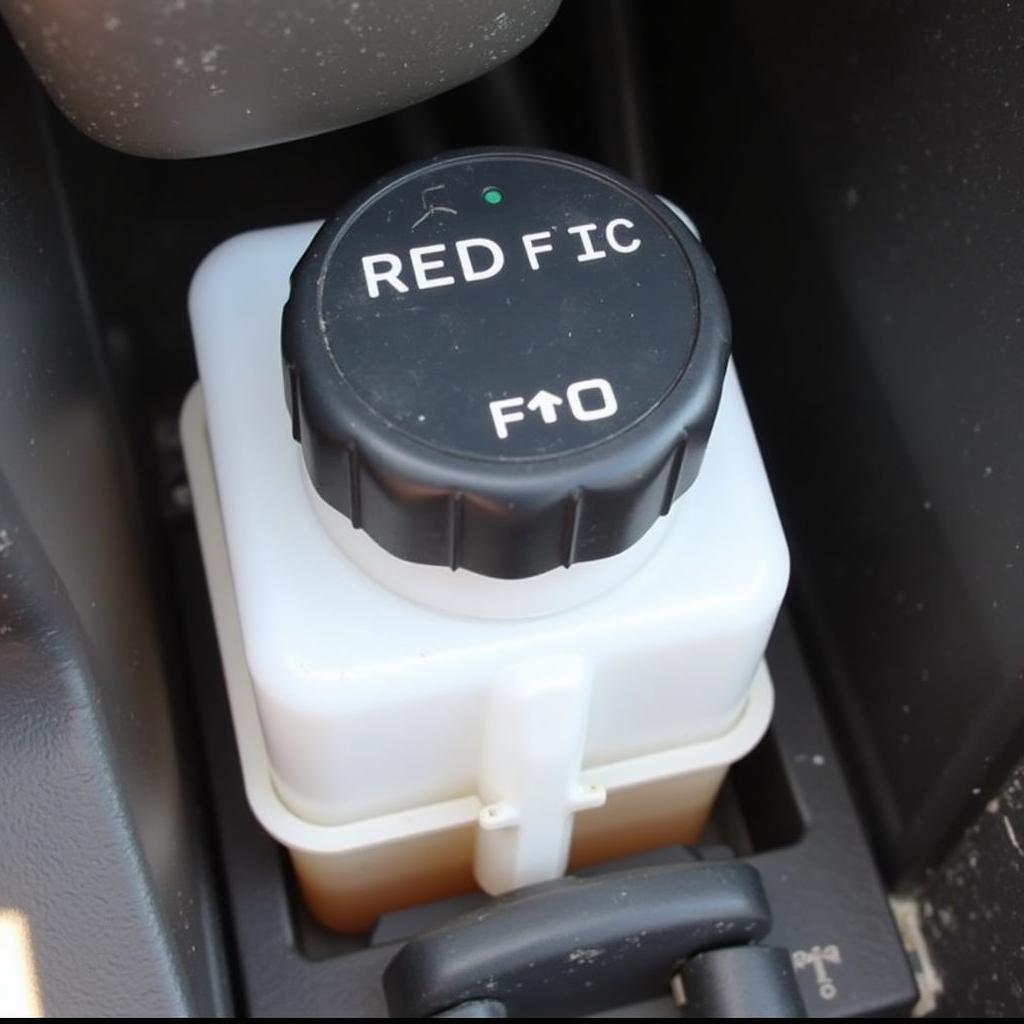The brake warning light on your 2003 Mercury Sable illuminating can be a jarring experience. It’s a clear signal from your car’s onboard computer that something needs attention in your braking system. Ignoring this warning could lead to serious safety risks. This article will guide you through the common causes of a brake warning light on a 2003 Mercury Sable and offer solutions to get you back on the road safely.
Understanding Your Brake Warning Light
The brake warning light, often symbolized by an exclamation mark within a circle or parentheses, serves as an early warning system. It’s designed to alert you to potential problems within the brake system before they escalate into dangerous situations.
Common Causes of a 2003 Mercury Sable Brake Warning Light
There are several reasons why your 2003 Mercury Sable’s brake warning light might turn on. Here are the most common culprits:
1. Low Brake Fluid Level
One of the most frequent causes is low brake fluid. Brake fluid is the lifeblood of your braking system, transmitting the force from your foot on the brake pedal to the brake calipers, which then squeeze the brake pads against the rotors to slow or stop your vehicle. A leak in the system can lead to low fluid levels, triggering the warning light.
 2003 Mercury Sable Low Brake Fluid Reservoir
2003 Mercury Sable Low Brake Fluid Reservoir
What to do: Check the brake fluid level in the reservoir under the hood. If it’s low, add the correct type of brake fluid specified in your owner’s manual. If you notice a significant drop in fluid level, suspect a leak and seek professional inspection.
2. Worn Brake Pads
Brake pads are designed to wear down over time. When they become too thin, a sensor in the brake pad will contact the rotor, completing a circuit and illuminating the brake warning light. This mechanism is crucial to remind you to replace your brake pads before they wear down completely, which could cause damage to the rotors.
What to do: If your brake pads are worn, it’s time for a replacement. It’s recommended to have your brake rotors inspected and resurfaced or replaced if necessary at the same time.
3. Faulty Brake Light Switch
The brake light switch is a small but vital component that activates your brake lights when you press the brake pedal. In some vehicles, including the 2003 Mercury Sable, the brake light switch is also integrated with the brake warning light system. If the switch malfunctions, it can trigger the warning light even if the brake system is functioning correctly.
What to do: Diagnosing a faulty brake light switch usually requires some mechanical expertise. If you suspect this is the issue, it’s best to consult with a qualified mechanic.
4. ABS Issues
Your 2003 Mercury Sable is equipped with an Anti-lock Braking System (ABS), designed to prevent wheel lockup during hard braking. The ABS system relies on sensors to monitor wheel speed. If the ABS control module detects a problem with the sensors, wiring, or hydraulic components, it can illuminate the brake warning light.
What to do: Diagnosing ABS issues requires specialized tools and knowledge. If you suspect an ABS problem, it’s crucial to have your vehicle diagnosed by a qualified mechanic to pinpoint the exact cause and make the necessary repairs.
Additional Tips for Troubleshooting
- Check Your Parking Brake: Ensure your parking brake is fully released. An engaged parking brake can sometimes trigger the warning light.
- Inspect for Visible Leaks: Look for any signs of brake fluid leaks around the brake lines, calipers, and master cylinder.
- Consult Your Owner’s Manual: Your Mercury Sable’s owner’s manual can provide specific information about your vehicle’s brake system and warning lights.
Conclusion
A glowing brake warning light should never be ignored. By understanding the common causes, such as low brake fluid, worn brake pads, a faulty brake light switch, or ABS issues, you can take appropriate action to address the problem. Remember, your safety and the safety of others on the road depend on a properly functioning brake system.
“Regular brake system inspections are crucial,” says John Davis, a seasoned automotive technician. “Early detection of potential issues can save you from costly repairs and ensure your safety on the road.”
When in doubt, always consult with a qualified mechanic to diagnose and repair any brake system issues.

